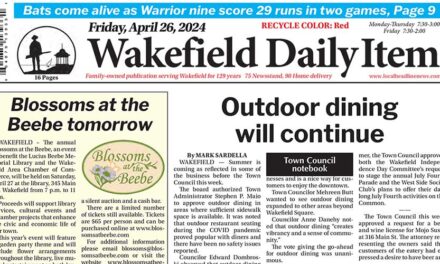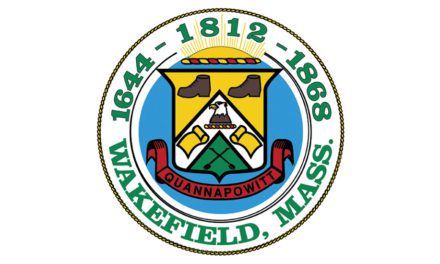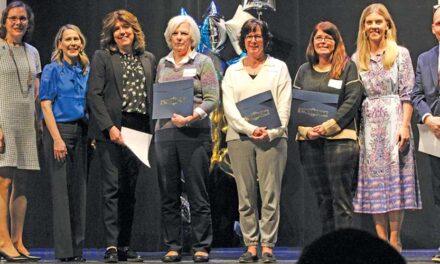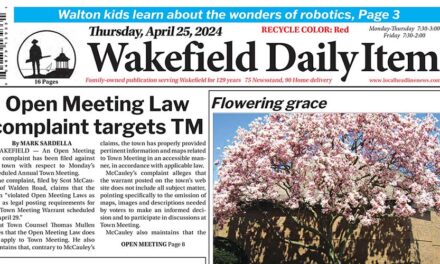Published in the October 29, 2020 edition.
By MARK SARDELLA
WAKEFIELD — The attorney for real estate giant Cabot Cabot & Forbes has taken legal steps to freeze the zoning at 200 Quannapowitt Parkway, effectively negating two Friends of Lake Quannapowitt-initiated Town Meeting articles aimed at curtailing CC&F’s plans to develop the property.
CC&F has made clear its intention to file plans and seek relief from the Zoning Board of Appeals to build a 485-unit apartment complex on the former American Mutual/Comverse site at the head of the Lake.
Representing Cabot Cabot & Forbes and two other property owners, attorney Brian McGrail this week took legal steps to freeze the zoning for the 200 Quannapowitt Parkway site as well as two adjacent properties, including 50 Quannapowittt Parkway and the Lakeside Office Park, effectively rendering the FOLQ articles irrelevant, even if passed by Town Meeting.
The Friends of Lake Quannapowitt (FOLQ) initiated a citizen petition to place two articles on the Nov. 7 Town Meeting warrant aimed at changing the Zoning Bylaw to curtail or limit CC&F’s ability to develop 200 Quannapowitt Parkway for certain types of residential use.
The two FOLQ proposed Zoning Bylaw changes got in under the wire for the Nov. 7 Town Meeting warrant, but were submitted too late to be handled through the normal Planning Board process. Zoning Bylaw changes must be referred to the Planning Board by the Town Council for a public hearing and a recommendation before they can be taken up at Town Meeting.
At their Oct. 15 meeting, the Town Council referred the two FOLQ articles to the Planning Board for the required hearings. Normally, the Planning Board would have voted at its next regular meeting on Oct. 27 to schedule the public hearing for a subsequent night, after notice had been posted and the required 14 days had elapsed.
But that would have set the public hearing after the Nov. 7 Town Meeting. Without the required public hearing and Planning Board recommendation, Zoning Bylaw changes cannot go forward to a vote at Town Meeting.
However, the Planning Board members decided to hold a special meeting on Wednesday, Oct. 21 to decide if they would schedule a special public hearing for FOLQ’s proposed Zoning Bylaw changes. By a narrow 3-2 vote, the Planning Board last week decided to schedule a public hearing on the two FOLQ articles for Thursday, Nov. 5 — just two days before Town Meeting.
But the actions taken by McGrail at the Planning Board meeting this week likely render the FOLQ warrant articles legally moot.
On behalf of his clients, McGrail filed Approval Not Required (ANR) plans and preliminary subdivision plans for 200 Quannapowitt Parkway, 50 Quannapowitt Parkway and 591, 595, 599 and 607 North Avenue (properties that include the Lakeside Office Park and the Lakeside Hotel).
According to McGrail, filing those plans freezes the current zoning of those properties for up to eight years, but his clients are not required to act upon or build according to those ANR or subdivision plans.
Planning Board members acknowledged at this week’s meeting that as long as those ANR and preliminary subdivision plans meet the legal requirements, they are required by law to accept and endorse them.
Prior to McGrail’s filing of the ANR plans and preliminary subdivision plans, the Planning Board had been less than enthusiastic about making special arrangements to hold a public hearing on the FOLQ Town Meeting articles.
Planning Board member Matthew Lowry argued against trying to squeeze in a special public hearing before Town Meeting. He maintained that the required 14-day period between scheduling and holding the hearing would place the hearing too close to Town Meeting for the board to be able to give the articles proper scrutiny or make meaningful changes after hearing from the public.
But none of that is likely to matter now.
Town Counsel Thomas Mullen confirmed this week that as long as the ANR and preliminary subdivision plans are endorsed and signed by the Planning Board and the preliminary plans are followed up with definitive plans, the current zoning for the affected land remains frozen for eight years from the date the plans were filed and/or signed.
In that case, Mullen said, the FOLQ-sponsored zoning measures, even if approved by Town Meeting, “would have no effect.”




